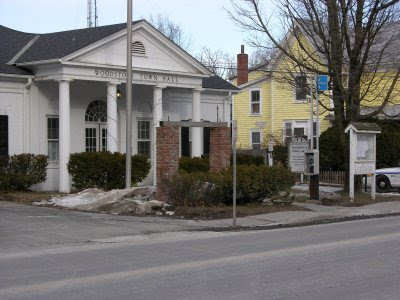Lance Matteson is president of the Ulster County Development Corp. and his job is to find Ulster County jobs. Recently, County Legislature Minority Leader Glen Noonan called Matteson’s job oxymoronic. But sustainable economic development is achievable. To create jobs, Ulster County needs to break bad habits. Like New York State as a whole, too much of Ulster County’s jobs strategy has depended on large-scale government funding. These include the $117 million Woodland Pond development in New Paltz, the $1 million Kings Highway project and the $8 million Solar Energy Consortium that depends on federal and state funding. These are worthy projects. But a better and more sustainable approach would be a micro-jobs strategy. The entrepreneurial spirit of the County’s hard working and creative citizens could be supported through encouraging loans and tax breaks to entrepreneurial business start ups rather than to big developers.
Capitalizing on Ulster County’s cultural and natural treasures requires creativity that builds on institutional and human capital. Museums, resorts and support for the arts are some of the directions a jobs strategy might take that amplify the County’s strengths. We can all imagine arts centers, Catskill museums and new IBMs reappearing in Kingston. But big ideas are not enough. In corporate America, for every product idea that succeeds, seven fail. Why should Ulster County be different? Many small ideas offer a better and more sustainable strategy than a few big ones rigidly controlled. Why focus on home run sluggers when Ulster County can encourage many base hitters?
Of all of Ulster County’s wonderful assets, its most important is its hardworking, entrepreneurial and imaginative citizenry. The best jobs strategy would not only amplify their skills and human capital, but would build on their imagination through a technique known as micro finance. Micro finance is a way to rebalance the economy’s bias toward big developers, large corporations and big banks back to individuals. It is the individual that made America great, not big business. What we remember as the biggest firms, Standard Oil (Exxon), McDonald’s and Dell Computer, started as ideas that were funded through personal saving. Exxon was founded by John D. Rockefeller, who in three years as an accounting clerk was able to save one year’s salary and bought his first store in Cleveland. McDonald’s was started by the McDonald brothers who closed their hot dog stand to open the first scientific-management designed restaurant. Dell Computer was started by a college student named Michael Dell. But in the past six decades New York has sacrificed its entrepreneurial spirit to big developers and state eminent domain schemes. High taxes discourage private citizens from saving the capital they need. And the capital is transferred to big firms like Bear Stearns that often squander it. Howard Schultz, born in Brooklyn, moved to Seattle to make Starbucks a great firm.
For too long New York State has relied on government solutions to economic problems. The result has been a consistent pattern of economic decline. The reliance on big government development comes from the State’s early and ambitious adoption of the Progressive ideas of Theodore Roosevelt, Al Smith and Robert Moses. More than other states, New York has relied on private use eminent domain, high taxes and subsidies to big business. The Progressive model has failed.
New York State’s population has grown by a 30 percent over the past 40 years and since the 1970s much of that growth is due to immigration. In contrast, the US population has doubled, a growth rate three times that of New York’s. In the post-World War II period, New York has lead the nation in both the numbers of people leaving the state and in the number of private use eminent domain actions taken. Upstate New York has become a ghost land of deserted factories and impoverished but hard working citizens while New York has consistently ranked among the top three states in taxation.
The State has relied on a flawed model of urban renewal and economic development that involves public subsidies to large projects. The Progressive model that Al Smith and Robert Moses pioneered assumed that the chief problem confronting society was to replace individual initiative with government intervention. New York advocated higher taxes, greater degrees of regulation and greater government involvement in the economy.
Among the most important of the policies replacing individual initiative with large institutions have been those that inhibit individual capital formation, savings, by private individuals. But private savings is how most of the nation’s important businesses, from Standard Oil to Dell Computer, have been formed. A jobs formation strategy ought to focus on re-orienting banks and public policies away from taxation and toward financing entrepreneurial start ups. This would involve encouraging banks and other lenders to finance and support start ups within Ulster County.
Economic growth comes not from attracting large businesses into Ulster County, but from creating conditions whereby Ulster County’s entrepreneurial, academic, artistic and idealistic spirit can best express itself. This can be done by re-balancing access to credit from big developers to small business and start-up entrepreneurs.
Microfinance is the idea that financial institutions can be encouraged, supported or created to provide financial services to entrepreneurs that enhance their ability to start businesses. The recent fiasco in the national credit market suggests that financial insitutions have lacked competence in assessing the best credit risks. They have tended to exclude small borrowers and taken reckless gambles that have ended up requiring public support. The scorning of entrepreneurial start ups by the nation’s financial institutions has caused the inefficient allocation of financing away from entrepreneurs toward real estate, big box retail and hedge funds.
A meaningful jobs strategy would start with Ulster County’s development of a loan guarantee program, much like student loans, whereby banks would be encouraged to lend to entrepreneurs along with arrangement for tax abatements and refunds for individuals who start businesses.










































